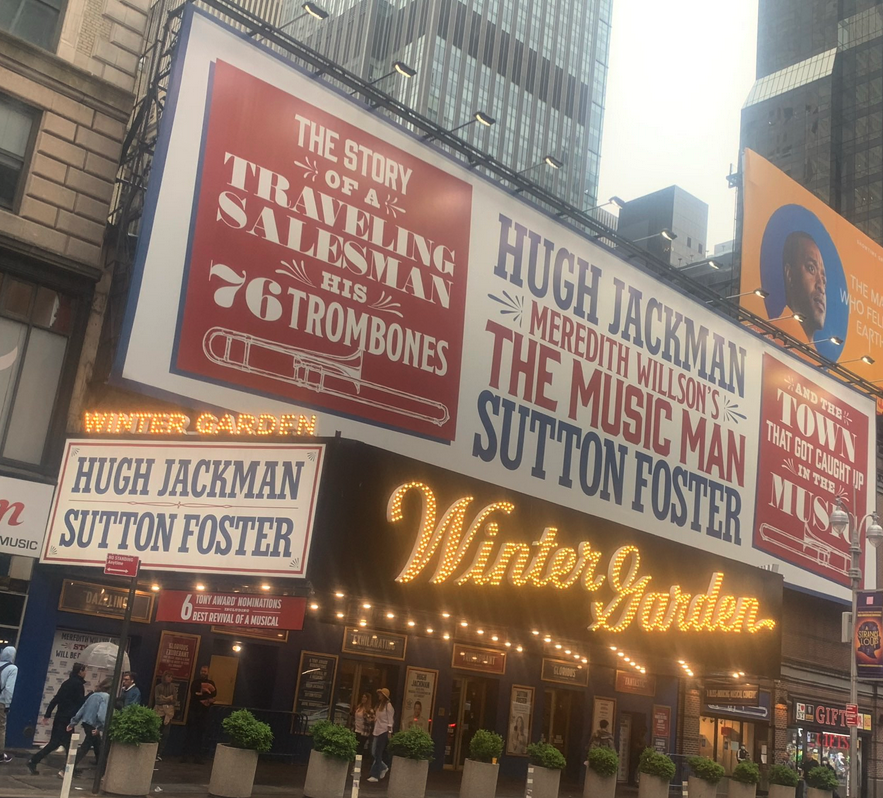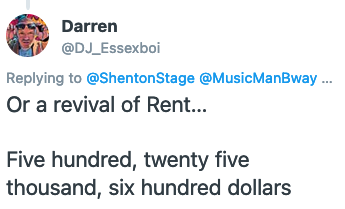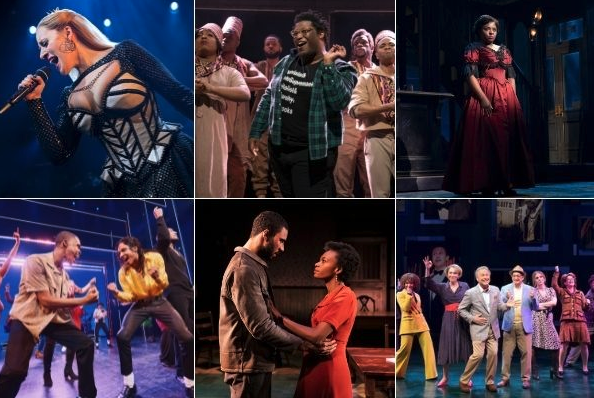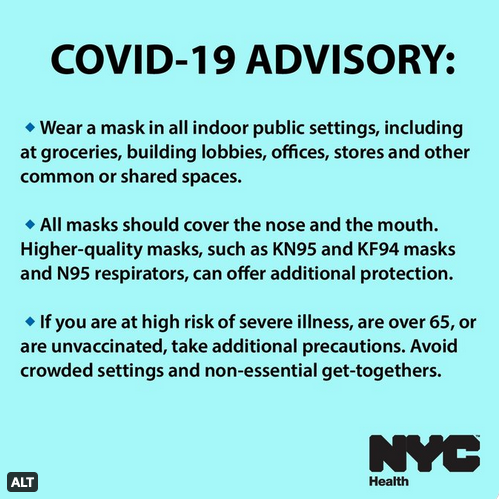Welcome to today’s edition of ShentonSTAGE, coming to you back from London again.
Greed is Good….
After the outrage of the Elliott Harper price gouging on the final run of tickets for their production of COCK at the Ambassadors Theatre that saw premium tickets being sold at £400 (subsequently reduced to £150 after the negative publicity), Broadway’s THE MUSIC MAN has, starting yesterday, offered the “bargain” of $76 *standing* tickets. Really? Is this how to make theatre more accessible?
As Gordon Gekko (played by Michael Douglas) famously put it in the 1987 film WALL STREET, “Greed is good” and theatre producers are clearly cut from the same cloth.

The $76 standing ticket price for THE MUSIC MAN is a nod to the song in the show 76 Trombones. But as a friend remarked, thank God it’s not 101 Dalmatians in that case (being presented at the Open Air Theatre this summer). Or, as someone tweeted in response to that idea,

In all seriousness, of course commercial theatre producers owe their primary fiduciary duty to their investors, not to their audiences, and are duty-bound to get the best returns they can on their investments. But it’s not an edifying sight, not least after the struggles of the last two years, to see producers seeking to cash in so opportunistically like this.
As the Rent tweeter put it, too,

The Tony nominees for Best Musical
My round-up of Tony-nominated musicals, including the six shows up for Best Musical (A STRANGE LOOP, MR SATURDAY NIGHT, PARADISE SQUARE and SIX, all with original scores, and THE GIRL FROM THE NORTH COUNTRY and MJ THE MUSICAL, featuring songs by Bob Dylan and made famous by Michael Jackson respectively), is here, written for and published by MUSICAL THEATRE REVIEW.

My personal vote would go to the formally adventurous original musical A STRANGE LOOP or the amazingly staged MJ THE MUSICAL. The most solid audience hit, however, is the Edinburgh fringe originated SIX, so it may well prove to be the victor.
Covid Health Advisory issued for New York
Just as I was leaving New York on Monday, the city’s Health Commissioner issued an advisory of a high COVID19 Alert level, stating: “All New Yorkers should wear masks in all indoor public settings. Those at high risk of severe illness should avoid crowded settings and limit get-togethers.”

Mask wearing, of course, is still mandated for all theatre visits in New York (though only some venues continue to check vaccination certificates now). However, flying home on JetBlue, I noticed that mask wearing is no longer enforced, for either passengers or crew. I wonder how long before restrictions are re-imposed there.
SEE YOU ON FRIDAY
If you can’t wait that long, I may also be found on Twitter here: https://twitter.com/ShentonStage/ (though not as regularly on weekends
